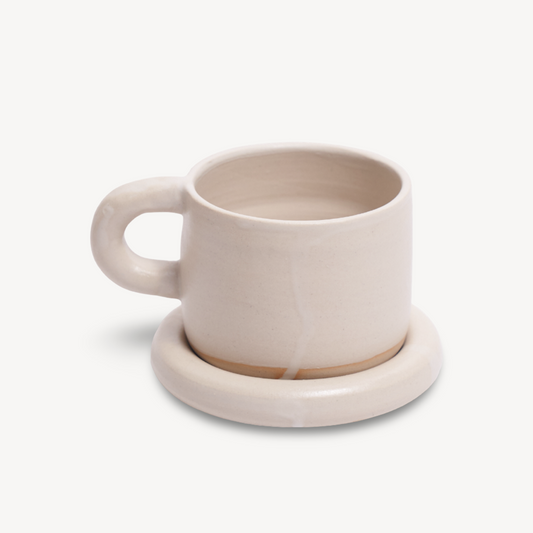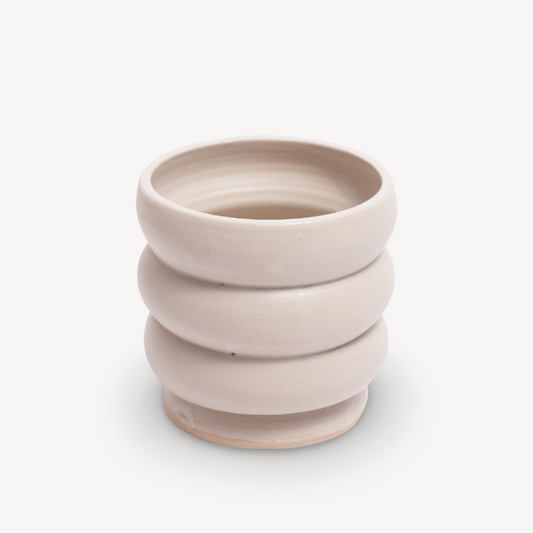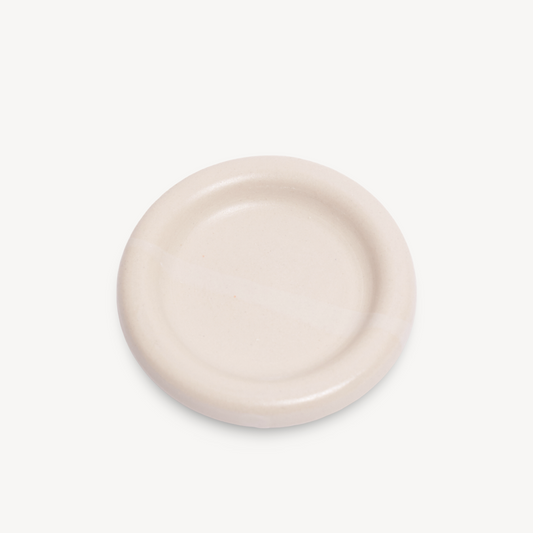Learn to embrace imperfection, relax and enjoy the creative process: Exclusive interview with the founder of HORTA CERAMICS
2024/05/11 |Text by Charlie Lee, Photo by HORTA CERAMICS
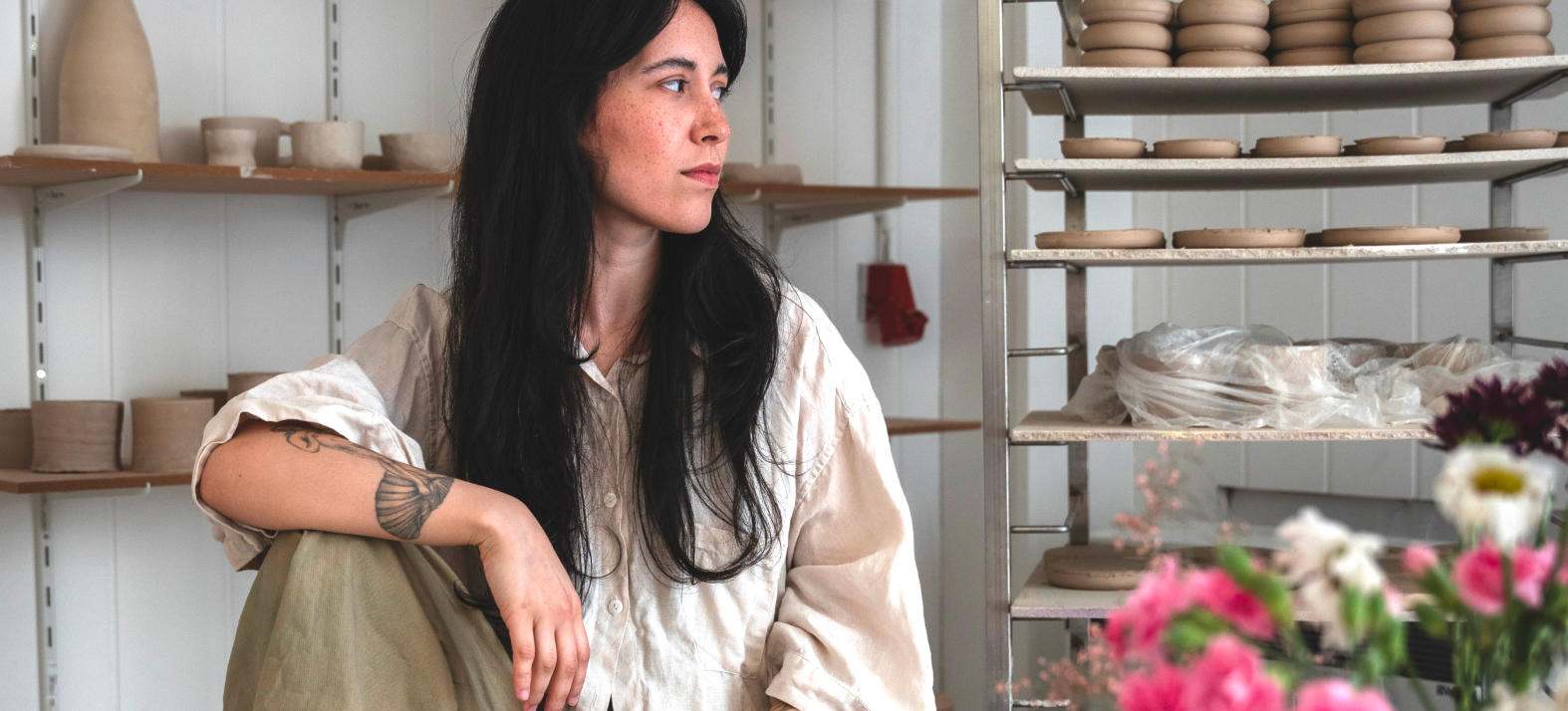
Horta Kemper, a ceramic artist who was born in Brazil and now lives in Dortmund, Germany, can be said to be a representative of the millennium who has escaped from her comfort zone. Although she has a stable job and a good academic experience, she has never been able to find her passion. , feeling sleepy about work and life.
"I was 24 years old and really wanted to find something that I really loved and wanted to do. I had no clue at that moment, except that I needed a change of environment, so I thought maybe it would be good to move to another country." Horta said with a smile of her time She had no money and couldn't speak English or German. Fortunately, she found a job as a nanny, which allowed her to slowly explore life abroad: "I had no expectations at all, so I set out with the mentality of starting from scratch. I hope I found what I love - I only moved here a week ago, but I found my husband first." After hearing this, we both laughed.
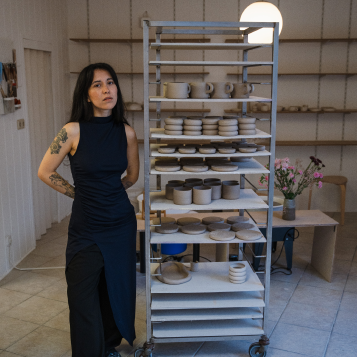
Became a potter by accident
Working alone overseas, not only did the education system differ and the language barrier was different, but there were also cultural differences and different challenges to overcome. The overseas experience in the first two years made Horta feel frustrated. Fortunately, her boyfriend at the time (now her husband) was with her, and her life was getting better. The beautiful environment also led her to find her passion: ceramic creation.
"I have always liked handicrafts, but it was just a hobby. Until we first started living together, I could not find a tableware set suitable for my home. Then I thought about it, why didn't I just make one myself?" From the beginning, she plunged into the world of ceramics. She searched for information online, looked for courses, and watched many online videos. Horta found that this interest seemed to be a job, so she decided to study in Portugal. "After I came back, I thought to myself, should I give it a try now? That's when I officially became a ceramic artist."
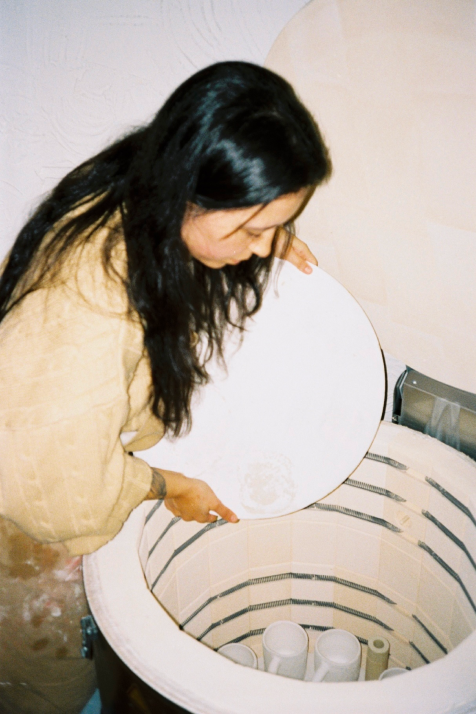
Embrace every imperfect detail
The effort involved in making hand-made pottery goes beyond the turntable. In addition to testing the artist's mastery of materials and pottery kneading skills, the temperature during firing, the ambient humidity during cooling, the type of spray gun or paint used when painting, etc., all need to be taken into account. Process considerations. Also due to the uncertainty of pottery, each work is unique; it may be that the paint particles are scattered in different positions, it may be the thickness of the curvature of the cup rim, or it may be the color halo and dyeing are poor-just like the handwork on haute couture clothes. Details, every seemingly imperfect detail, exudes the artist's love and dedication to the work.
"At the beginning of my career, a work colleague said this to me. He said: Horta, please remember to always only work with people who really understand the process - because you are not a machine or a factory, this is manual work. Pottery." Speaking of the challenges of hand-made creation, Horta shared: "We make each pottery piece by hand, and each production process is slightly different. We use natural materials, so problems may occur at any time and at any step. Basically there are new challenges every day - you need a lot of love! Because the process is very stressful."
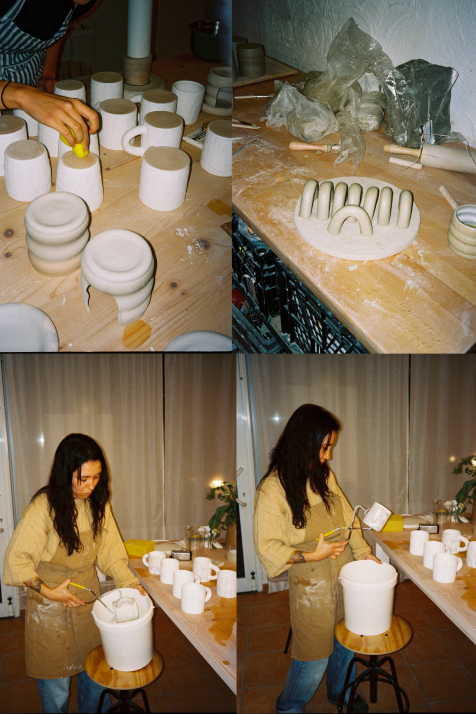
Having just established his own studio in January, Horta shared with me that this year is an exciting year. Not only is he co-branding with a brand outside of Europe for the first time, he is also cooperating with a local brand near his home for the first time, while continuing to teach and create. Talking about future prospects, she said that she also wants to enter the field of cooking and actively contact restaurants, food stylists, other studios in Berlin or different activities, etc., hoping to have more opportunities. "It gives me more possibilities to explore creativity - but I am really busy! Sometimes I need to take a break." She said with a smile: "Sometimes I am bursting with creativity, but have no motivation at all; sometimes I am full of motivation, But there is no creativity at all, so timely rest is still necessary.”
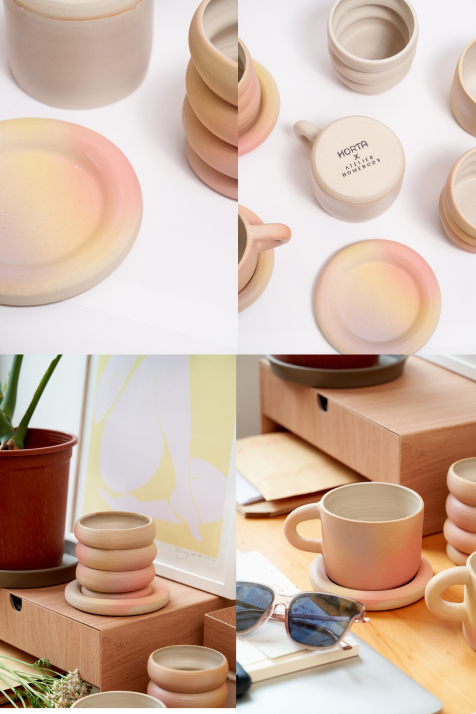
Living utensils that exude handmade warmth
The winter in Europe is humid and gloomy. Before being swallowed up by the melancholy, many people like to visit jewelry stores to check out the upcoming new spring products. They use playful shapes and colorful colors to heal themselves, and their mood seems not so bad. Horta nodded in agreement. "We need a little color! Because my past works are mainly based on shapes and rarely use color. So I am very excited to have this opportunity, and at the same time I am nervous about this challenge." Mentioning this HOMEBODY collaboration , she replied cheerfully: "One of the most important points when collaborating is that the product inspiration needs to be consistent with my brand style. When we were discussing, this idea suddenly came to my mind. I hope to use an airbrush to color the work. It has a glazed gradient effect.”
The smudge is not too eye-catching in pastel tones, and the glazed appearance sparkles in a restrained way, just like Horta's personal brand, exuding a warm and rustic atmosphere. There are two items in this collaboration, namely Timeless in Spring and Timeless Bubble handmade coffee cups, available in simple natural clay colors and orange gradient colors like the afterglow of the sunset; the former has a wide round appearance with small round hands. The latter is presented in a playful bubble shape, with the HORTA X HOMEBODY logo imprinted on the bottom, ready to add a pleasant atmosphere to your spring home.
Relax! This is a ceramic creation, not a rocket equation
Watching her talk about creation, life and challenges with a smile on her face, I asked curiously if she had any advice to share with people who are at a crossroads in life, or who want to get into ceramic creation?
"First of all, I think it should be enthusiasm!" She laughed: "I always tell my students: Please relax! It will make a big difference in your creation. When you sit in front of the turntable, don't care about what other people are doing. How about it. If your head and body are not in sync, and you are always stressed or overthinking, you will not be able to do anything well." And then: "I always have students who have high expectations of themselves and demand perfection in everything. But this is ceramic creation! I always tell myself and other students that we are here to play with clay, and that’s it. You must learn to accept imperfection, learn to embrace failure, try it with ease, and let your body and mind synchronize to experience the process. This is the most important."
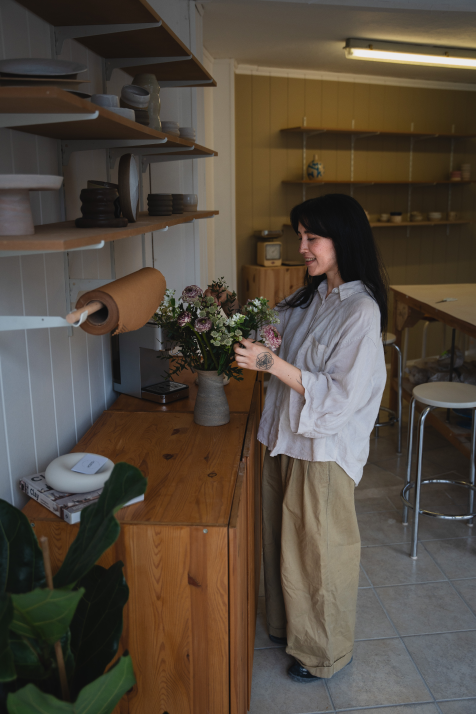
Add a romantic touch to your home
-
Timeless Spring handmade mug
Regular price TWD $1,380Regular priceUnit price / per -
Timeless Bubble Handmade Cup
Regular price TWD $1,380Regular priceUnit price / per -
Timeless Collection takeover
Regular price TWD $280Regular priceUnit price / per


